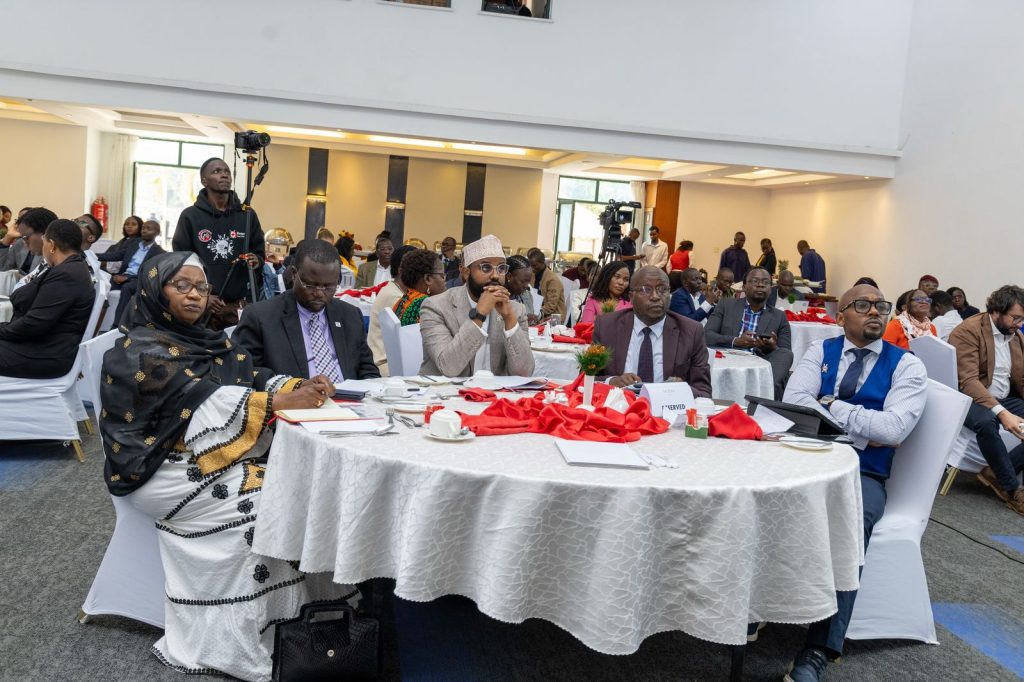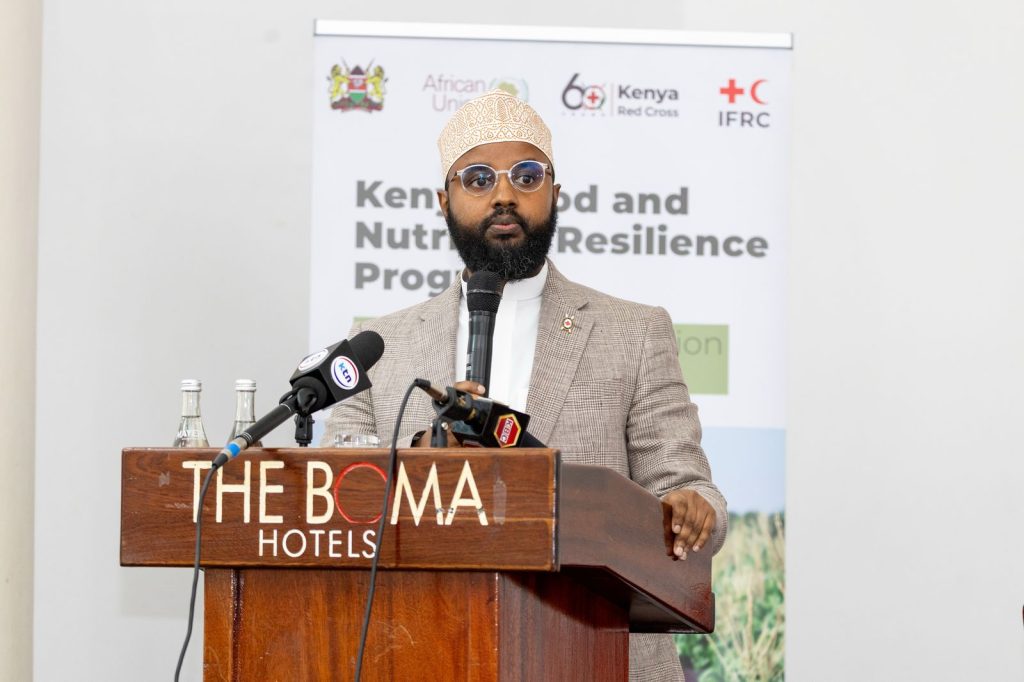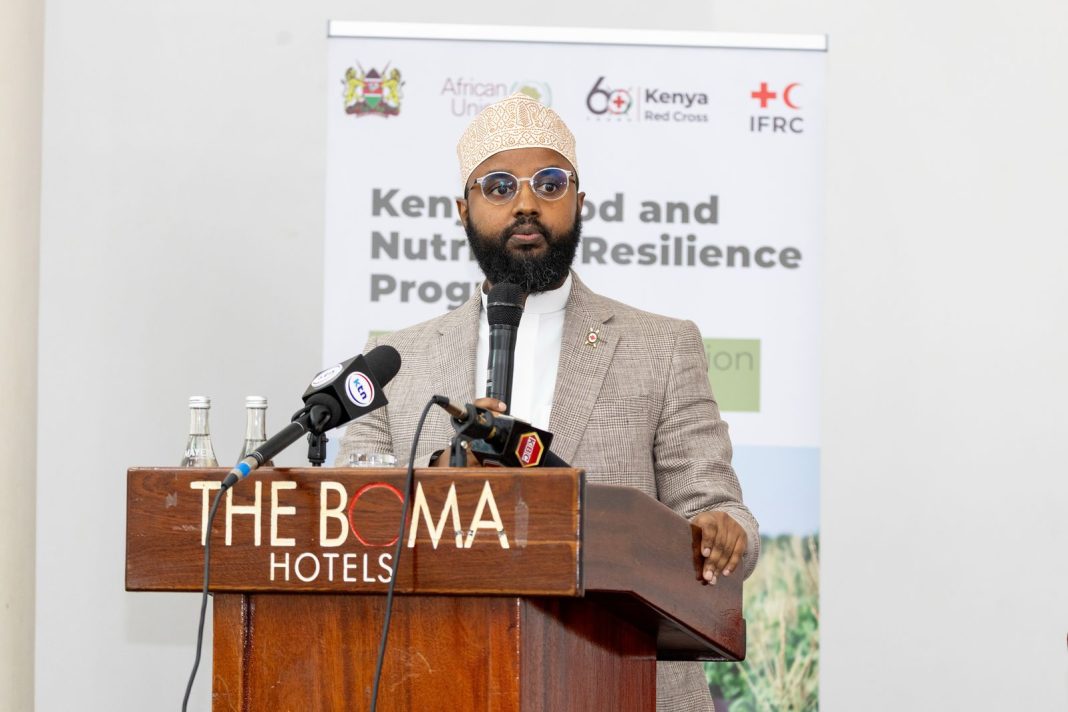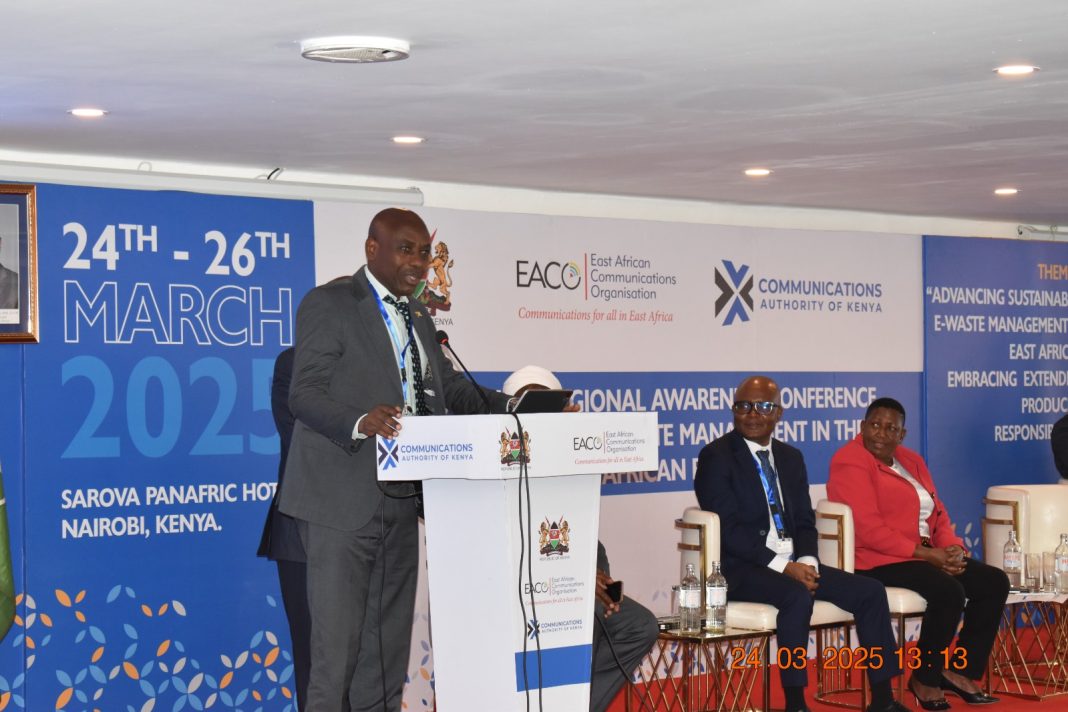A new era in the fight against food insecurity and malnutrition has begun with the launch of the Kenya Food and Nutrition Resilience Program (FNRP), a groundbreaking initiative by the Government of Kenya, the Kenya Red Cross Society (KRCS), and the African Union, with support from development partners.
Announced today in Nairobi, the USD 5 billion program aims to transform food systems and uplift 5 million vulnerable people in Kenya’s arid and semi-arid lands (ASAL), areas that have been hit hardest by the country’s climate crisis.
This initiative is part of the broader Horn of Africa Food and Nutrition Resilience Program, which extends its impact beyond Kenya to include Somalia, Ethiopia, and South Sudan.
With climate-induced disasters becoming more frequent and severe, this regional effort seeks to create lasting solutions to the interconnected challenges of food insecurity, malnutrition, and climate change.
Speaking at the launch, Charles Businge, Regional Director for the International Federation of Red Cross and Red Crescent Societies (IFRC) Africa, emphasized the transformative potential of the program: “This program is a game-changer for Kenya’s food security. By strengthening local institutions and government systems, investing in public-private partnerships, and putting communities at the center of decision-making, we are ensuring that vulnerable communities are not only fed but also empowered to sustain themselves.”
Kenya has long grappled with the impact of cyclic climate crises, with recent years showing the devastating effects of erratic weather patterns. In 2023, a staggering 6.4 million people in Kenya were in need of humanitarian assistance, and 5.4 million of those were facing acute food insecurity.
While the country experienced a brief reprieve due to recent rains, the underlying issues—drought, flooding, and socio-economic vulnerabilities—have left many households struggling to recover.
Kenya’s low-lying coastal regions face further threats from rising sea levels, endangering critical industries like fishing and agriculture, which are crucial to the nation’s economy.
ASAL regions, which cover 80% of Kenya’s landmass, have borne the brunt of these climate-induced challenges, with agriculture in these areas particularly vulnerable.
Inefficiencies in food systems and rising food prices have compounded the crisis, limiting access to basic food supplies for millions and contributing to a surge in malnutrition and health issues.
Addressing these systemic problems has become a national priority, and the FNRP represents a comprehensive, multi-sectoral approach to tackling food insecurity head-on.
The Kenya Food and Nutrition Resilience Program is built on four key pillars that address both immediate needs and long-term sustainability.
The program aims to empower communities through resilient agricultural practices, enhance value chain development, and improve access to clean water.
Ecosystem restoration, sustainable waste management, and climate-resilient food production are critical components for ensuring that the environment can support long-term food security.

Strengthening health systems to deliver nutrition programs aligned with Kenya’s national goals, including the Kenya Nutrition Action Plan and Vision 2030, will help improve public health outcomes and reduce malnutrition.
KRCS Secretary General, Dr. Ahmed Idris, echoed this sentiment, stressing the importance of collaboration. “The FNRP is an ambitious program that showcases the power of partnerships in addressing hunger and malnutrition sustainably. Our approach integrates innovation, indigenous knowledge, and technology to drive impactful change.”

Central to the success of the FNRP is its commitment to working closely with local communities.
By ensuring culturally sensitive solutions and promoting community involvement, the program seeks to empower people on the ground, making them active participants in building their own resilience.
This community-centered approach will also tap into indigenous knowledge and modern innovations, providing a balance between tradition and technological advancement.
In addition to direct interventions, the role of media in raising awareness about the FNRP’s goals cannot be overstated. Educating the public on environmental conservation, health and nutrition, and food security interventions is critical for ensuring widespread support and understanding of the program’s objectives.
Program signals a call to action for all sectors of society. The Kenya Red Cross Society is urging private sector stakeholders, civil society organizations, and international partners to join forces in scaling up efforts to combat hunger.
In light of Kenya’s vulnerability to climate-induced food crises, building a hunger-free and resilient nation requires a collective commitment.
As Kenya navigates the complex challenges posed by climate change, the FNRP provides a hopeful path forward. By integrating economic, environmental, and social solutions, the program stands as a beacon of innovation and resilience.
Through sustained effort, collaboration, and community-driven solutions, Kenya aims to not only alleviate the current food crisis but also build a foundation for lasting food security and nutrition for generations to come.




